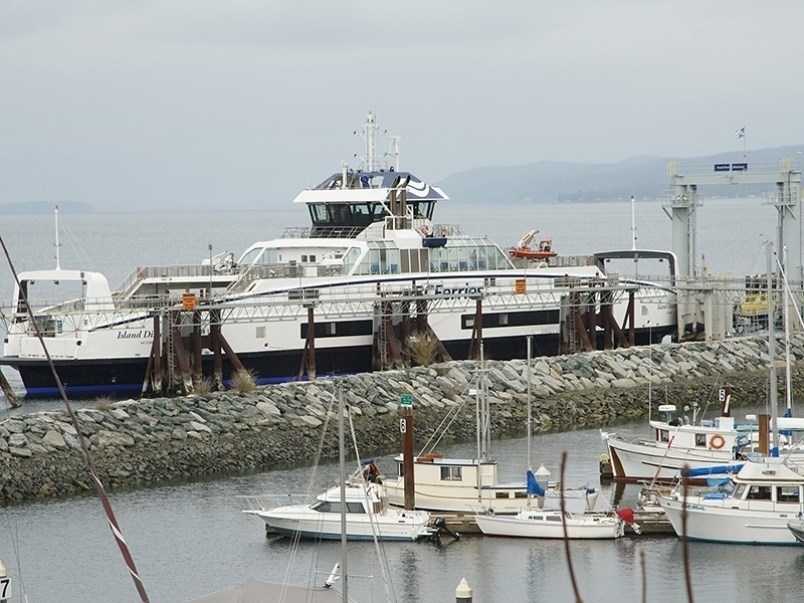qathet Regional District will be writing a letter of support for the electrification of BC Ferries’ Island Class ferries, including Island Discovery ferry, which runs on the route between Texada Island and Powell River.
At the January 28 regional board meeting, regional district chair and Electoral Area A director Patrick Brabazon said the local ferry advisory committee is totally supportive of the initiative.
“It strikes me as a great project,” said Brabazon.
He said he had been advised by Darin Guenette, BC Ferries’ manager of public affairs and ferry advisory committees, that this was a “cold ask,” meaning it would be landing on the desk of government “just out of the blue.”
Electoral Area D director Sandy McCormick said it was a great ask because it’s an opportunity for the federal government to showcase this project as a green energy example of what is being done.
“I do hope that it goes through,” said McCormick. “It would be great to have our ferries run on electricity, and the terminal, too, instead of diesel.”
The board carried a motion to send a letter of support to the federal government for BC Ferries’ initiative.
Correspondence from BC Ferries indicates that the corporation has embarked on the exciting pathway to ferry electrification, which makes a major step in its long-term emissions reduction strategy that aims to transition the fleet away from fossil fuels and reduce greenhouse gas emissions. The correspondence stated that BC Ferries has begun the detailed vessel and terminal design process to fully electrify its Island Class vessels and the terminals they connect.
BC Ferries indicated it will be approaching the federal government to request funding to help support implementation of the project.
According to BC Ferries, the initiative would reduce 18,000 tonnes of greenhouse gas emissions in the first phase, eliminate air contaminants and reduce the underwater radiated noise, creating healthier marine environments for southern resident orcas and other marine life.



